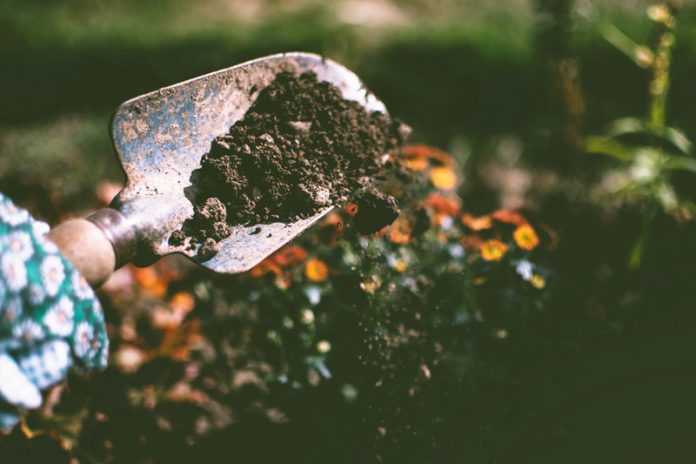
“God said, ‘Let the dry ground appear, and God called the dry ground ‘land’…and God said, ‘Let the land produce vegetation…and God saw that it was good.”
Come March every year, I find myself with the “grubbing” urge. Just to scratch around in the soil, like my father did yearly, to produce all kind of veggies is something I look forward to. I usually have pretty good luck with things as tomatoes, okra, squash and onions. I wish I had space enough for purple hull peas.
The longer I live, the more I realize how important and powerful dirt really is to the very survival of our planet and the human race. But every year, we lose a lot of it to concrete and erosion. And thousands of animal and plant species are threatened with extinction because humans have abused the soil. As the saying goes, “No dirt, no food, no us.” We don’t think of dirt as being sacred, but it is.
The great theologian, Paul Tillich, summed it up in his famous statement: “God is the ground of our being.” Generations ago, farmers seemed to know that the Creator and creation were part of the same theological ecosystem, and knew that the land is a gift from God. Maybe farmers still feel that way, but I doubt if urbanites do. Most people have left the land in search of jobs in factories, offices and wherever.
On the positive side, however, there is a shift today from a vertical God to a horizontal God. In other words, God is not merely in His Heavens, but God is with us—within us—here and now. God is in the soil, in the water and in all living creatures. I find God as much under my feet as I do over my head. From the ground, we are made; to the ground, we must return.
As I say, there are hopeful signs. Although American soil is disappearing ten times faster than it can be replenished, more and more people are making their way back to the ground. Drive around in almost any subdivision and you will see gardens in front yards and behind fences. Cities are removing concrete, replacing it with trees, plants and wildflowers. Some cities are turning ugly, run-down blocks into urban farms, producing both food and jobs. Many churches are planting plots for the growth of vegetables and using it as part of worship services.
You see, everything is of one piece. Everything depends upon everything else. If we don’t honor that, we are in big trouble. There is an African tale that illustrates this perfectly.
Once upon a time, when animals could talk, the mice on a farm called a summit of all the other animals. They were worried and they cried because they had seen the mistress of the house buy a mousetrap. They were now in danger, but the other animals scoffed at the mice’s anxiety. The cow said that she had nothing to worry about because a tiny contraption couldn’t harm her. The pig reacted the same way. The chicken also announced that she had nothing to worry about in the face of such a tiny trap.
But things are all interconnected, and that soon became apparent. The mistress set the mousetrap and, on the very first night, heard it snap. Getting out of her bed to look at what it had caught, she said that it had trapped a snake by its tail. While trying to free the snake, she was bitten and the poison soon made her sick. She went to the doctor who gave her medicine to combat the poison and said, “What you need now to get better is chicken broth.” (You can guess where the rest of this is going.) They killed the chicken, but her illness lingered. People came to visit. More food was needed so they slaughtered the pig. Eventually, the poison killed the mistress and a huge funeral was held. A lot more food was needed, so they killed the cow.
So, who can doubt that we are all connected, in some way, to each other? Soil is our support system. Jesus told a parable once of a sower who went forth to sow and some seeds fell on bad ground, but some fell on good ground. You and I can be those good seeds by taking care of this good earth, even if it is a small plot of ground in your backyard.
And, if you just happen to grow purple hull peas, I will be happy to make a pastoral call. Amen.










